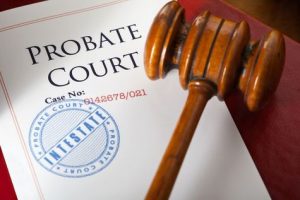There are two standard ways in which a person can have their last will and testament prepared, and both of these can be employed in order to prepare probate of wills. In one method, known as the secured method of preparation of a will, the individual who is making the document signs an asset security agreement (ASA). This arrangement does not convey any power of attorney or right to manage the assets in any way, nor does it authorize any one to make decisions on the testator’s behalf. Rather, the individual executing the will must apply for powers of attorney within 60 days after the testator’s death to enable the probate proceedings to commence.
Another method of preparation of the probate of wills is through the non-secure method, which is much more flexible and permits the testator to express more personal preferences regarding the methods of disposition of his or her property. Unlike securing a last will and testament, this method does not require any asset security arrangements, and will most likely be the preferred method of preparation of probate of wills if the testator wants to appoint an agent or attorney. For instance, a will may be prepared that names an individual or corporation to act on the testator’s behalf in the probate proceedings. The individual or corporation would then draw up and sign the instrument, which would be countersigned by the testator.
A common example of this is when a person dies intestate (without being under the influence of alcohol) and has no will or trust in place. Intestate probate entails the state performing administrative functions necessary in carrying out the wishes of the deceased, including recording of final wishes and distributing the estate to named beneficiaries. Without express directions from the testator, a probate court may appoint an administrator to administer the estate on the testators’ behalf, thereby allowing the administration to proceed without involving the probate court. However, there are instances when a testator’s last will and testament do not specify who should conduct the administration.
A qualified attorney, preferably one with experience in probate matters, will generally fill in the last will and testament of a testator whose death has resulted in probate proceedings. This is usually the case if the testator had no living estate, few assets, and small debts. In these situations, it may be desirable for the testator to have someone appointed in his or her name to handle his or her affairs. This is typically referred to as a “rethra representative” or “rethra officer.” There are a number of states that provide for this position, including Arkansas, Arizona, California, Florida, Hawaii, Illinois, Maryland, Massachusetts, Montana, Nevada, New Hampshire, Oregon, Pennsylvania, and Washington.
In addition to the use of a probate court to process probate for estates with no probate courts, there are other options available to the estate attorney. He or she may choose to contest the validity of the will, or they may attempt to prevent the distribution of the property to third parties. These actions are referred to as “contempt of court,” and they must be filed with the probate courts within two months of the date of the decedent’s death. Failure to do so can result in the probate courts declaring the document to be  null and void, thus making the distribution of the estate under the terms set forth in the will irrelevant.
null and void, thus making the distribution of the estate under the terms set forth in the will irrelevant.
The most common situation in which an attorney may use the exercise of a right called “wrinkle” involves contesting the will. A will that contains several express provisions regarding the distribution of the property does not comply with the statutory requirements for intestate distribution and can therefore be considered null and void by the probate courts. The process of challenging a will usually begins with the filing of a notice of contest, followed by a series of meetings with witnesses and other individuals designated to review the will. If the plaintiff is not able to prove that the will is invalid, his or her case will be heard by the same judge who heard the probate case in the hope that a new agreement can be reached, said Alphareta, GA probate attorney.
 The next thing to be aware of is that a probate attorney is going to be one of the most knowledgeable people that you will ever meet. While most people never think about this aspect of their loved ones passing, their lawyer will be able to give you invaluable information regarding your options. Many times, this information can save you enormous amounts of time, money, and heartache. Even if you already have a will in place, a probate attorney can make modifications and amendments to it to ensure that everything is legally defined and permitted. It’s also their job to inform you of any debts that are not properly designated to beneficiaries and can impact your ability to receive your inheritance.
The next thing to be aware of is that a probate attorney is going to be one of the most knowledgeable people that you will ever meet. While most people never think about this aspect of their loved ones passing, their lawyer will be able to give you invaluable information regarding your options. Many times, this information can save you enormous amounts of time, money, and heartache. Even if you already have a will in place, a probate attorney can make modifications and amendments to it to ensure that everything is legally defined and permitted. It’s also their job to inform you of any debts that are not properly designated to beneficiaries and can impact your ability to receive your inheritance.